Finance News
Will the Federal Reserve take us back to an era of cheap money?
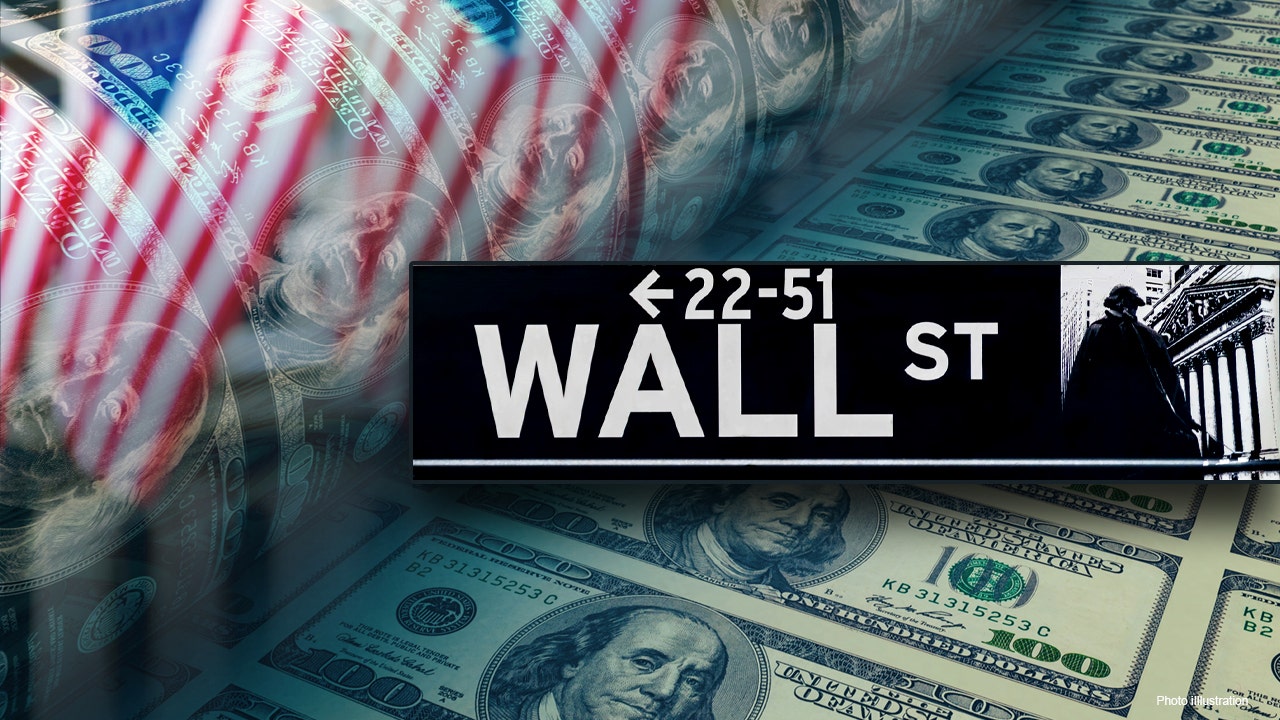
Former Federal Reserve Governor Kevin Warsh discusses the Federal Reserve’s decision to slash rates on ‘Kudlow.’
Investors celebrated what could be the return of an easy money era after the Federal Reserve cut interest rates for the first time since March 2020 and projected rates may decline even further over the next two years.
Chairman Jerome Powell was asked by FOX Business’ Edward Lawrence whether the U.S. could be headed back to a time when rates hovered near zero, or so-called cheap money.
“It’s just a great question that we can only speculate about intuitively,” Powell said. “My own sense is that, that we’re not going back to that. But, you know, honestly, we’re going to find out. But, you know, it feels to me that the neutral rate is probably significantly higher than it was back then.
“How high is it? I just don’t think we know.”
THE FED CUTS RATE BY 50 BASIS POINTS: WHAT TO KNOW
The Federal Funds target rate now sits between 4.75%-5.00%, and projections from the central bank show rates could fall below 4%.
| Ticker | Security | Last | Change | Change % |
|---|---|---|---|---|
| I:DJI | DOW JONES AVERAGES | 42063.36 | +38.17 | +0.09% |
| SP500 | S&P 500 | 5702.55 | -11.09 | -0.19% |
Investors celebrated the move, pushing stocks, which were already at record levels, even higher. The Dow Jones Industrial Average crossed 42,000 for the first time ever, while the S&P 500 hovers at its all-time high.
HOW THE FED’S HISTORIC RATE CUT MAY IMPACT YOUR DAILY FINANCES
Dow Jones Industrial Average
The last time policymakers cut rates, the COVID-19 pandemic was raging as a public health and financial crisis, prompting an emergency rate cut in March 2020 when the Fed took rates to a range of 1%-1.25%, the largest cut since the 2008 financial crisis.
“The spread of the coronavirus has brought new challenges and risks,” Fed Chairman Jerome Powell said at the time during a news conference. “The virus has afflicted many communities around the world, and the outbreak has also disrupted economic activity in many countries. The virus and the measures being taken to contain it will surely weigh on economic activity, both here and abroad, for some time.”
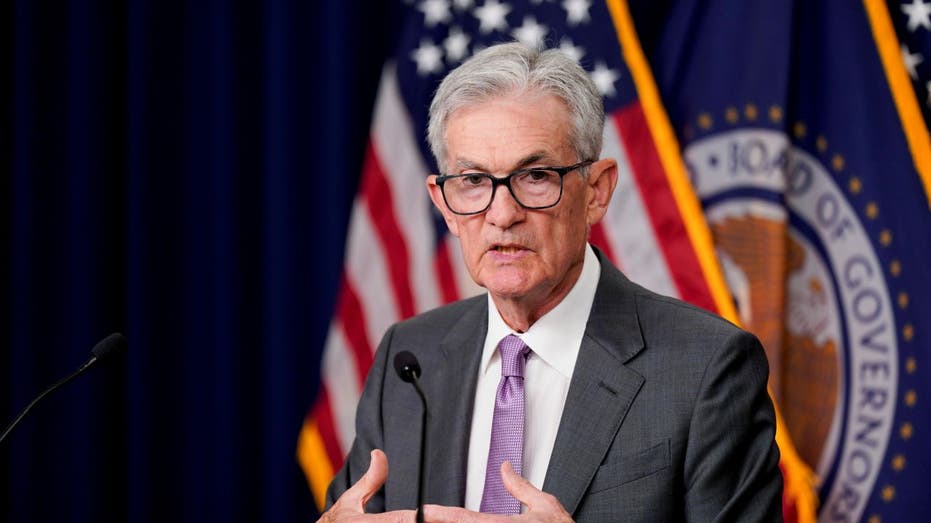
Jerome Powell, chairman of the Federal Reserve, during a news conference following a Federal Open Market Committee meeting in Washington, D.C., July 31, 2024. (Al Drago/Bloomberg via Getty Images / Getty Images)
Americans enjoyed the lowest borrowing costs of a generation. For example, a 30-year fixed rate mortgage fell to a record low of 2.65% in January 2021, as tracked by Freddie Mac.
HOW LOW MAY MORTGAGE RATES GO?
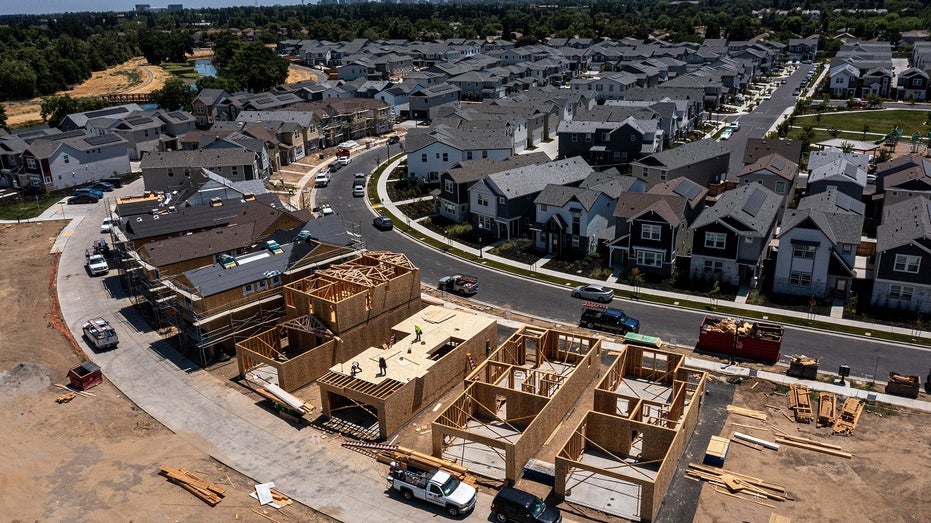
Homes under construction in Sacramento, Calif., July 3, 2023. (David Paul Morris/Bloomberg via Getty Images / Getty Images)
While the start of the current easing cycle is underway, the current conditions are far from the pandemic upheaval. Still, borrowing costs will begin to fall, but its unlikely rates will return to the lows of four years ago.
FED GOVERNOR EXPLAINS HER NO VOTE
Additionally, inflation remains a risk. That’s why Federal Reserve Governor Michelle Bowman was the sole dissent, voting against a rate cut.
“While core inflation remains around or above 2.5%, I see the risk that the committee’s larger policy action could be interpreted as a premature declaration of victory on our price stability mandate. We have not yet achieved our inflation goal” she explained Friday.
Finance News
JPMorgan CEO Jamie Dimon to allow Bitcoin at the bank
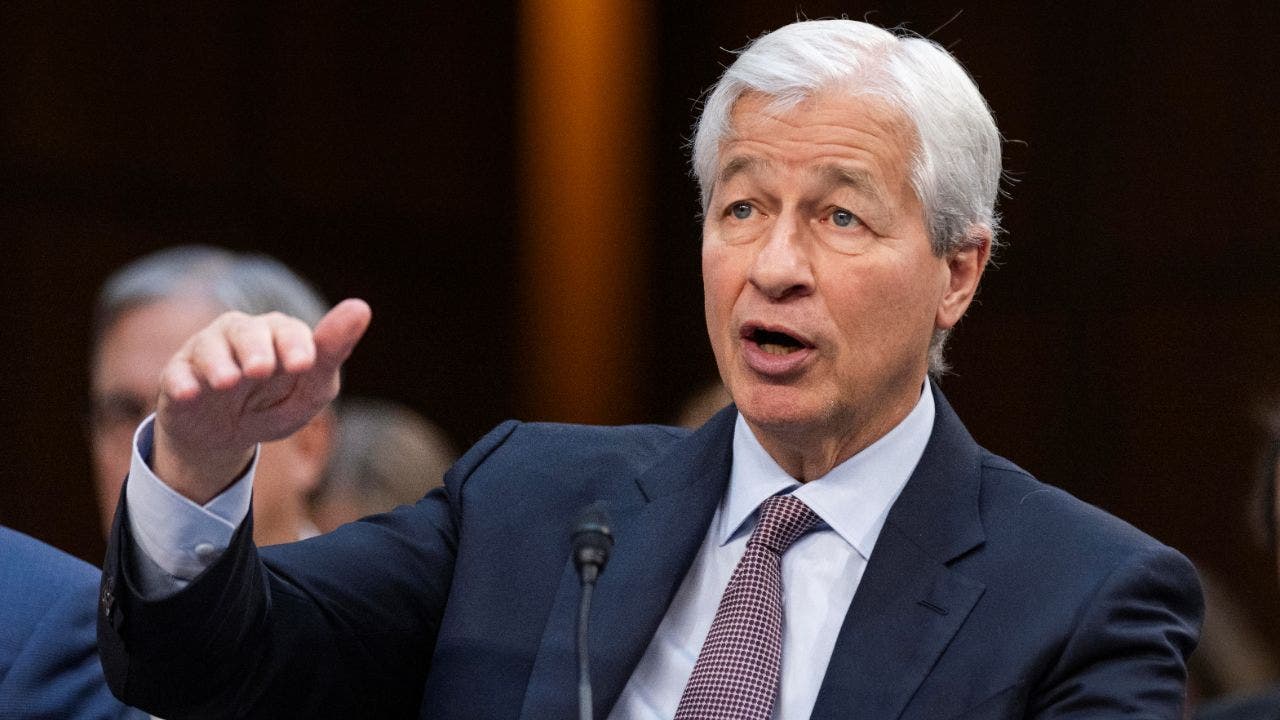
Bespoke Investment Group co-founder Paul Hickey breaks down the current volatility in the market and discusses his current favorite investment opportunities on ‘Making Money.’
JPMorgan CEO Jamie Dimon still isn’t a fan of Bitcoin but he’s not letting his personal feelings get in the way of business at the bank.
“When I look at the Bitcoin universe, the leverage in the system, the misuse,” he said at the company’s annual investor day Monday in New York. Noting that bad actors can use it for sex trafficking and terrorism.
“I am not a fan of it. We are going to allow you to buy it. And we’re not going to custody it. We’re going to do is put it on statements for clients. So, you know, I don’t think we should smoke, but I defend your right to smoke. I defend your right to buy Bitcoin, go at it”, he added.
JPMorgan Chase CEO Jamie Dimon Speaks at Investor Day 5/19
At JPMorgan’s Investor Day, Dimon said the bank will now allow clients to buy Bitcoin but that policy hasn’t changed his view on the cryptocurrency. (JP Morgan)
Bitcoin, the largest crypto by market value, is just shy of its all-time high of $106,734.51 reached last year.
DIMON SOUNDS OFF ON HIGH MORTGAGE RATES, LAYS BLAME
Dimon has long been a critic of Bitcoin, including these remarks from 2021:
“I personally think that Bitcoin is worthless,” Dimon said while speaking at a virtual event hosted by the Institute of International Finance. “But I don’t want to be a spokesman for that, I don’t care. It makes no difference to me.” Dimon has also likened the crypto to “fools gold.”
Shares of JPMorgan Chase are up over 10% outperforming the S&P 500 which is flat for the year.
In January 2024, the Securities and Exchange Commission greenlighted the first Bitcoin exchange-traded fund, prompting a slew of firms to launch their own, making the asset class more accessible for both institutional and retail investors.
| Ticker | Security | Last | Change | Change % |
|---|---|---|---|---|
| IBIT | ISHARES BITCOIN TRUST – USD ACC | 60.66 | +0.68 | +1.13% |
| FBTC | FIDELITY WISE ORIGIN BITCOIN FUND – USD ACC | 93.14 | +0.98 | +1.06% |
| GBTC | GRAYSCALE BITCOIN TRUST ETF – USD ACC | 84.12 | +0.88 | +1.06% |
GET FOX BUSINESS ON THE GO BY CLICKING HERE
iShares Bitcoin Trust ETF, Fidelity Wise Origin Bitcoin ETF and Grayscale Bitcoin Trust ETF are currently the largest funds by assets under management, as tracked by ETF.com.
Finance News
Credit Repair Hacking – Boost Your Credit Score

Product Name: Credit Repair Hacking – Boost Your Credit Score
All orders are protected by SSL encryption – the highest industry standard for online security from trusted vendors.

Credit Repair Hacking – Boost Your Credit Score is backed with a 60 Day No Questions Asked Money Back Guarantee. If within the first 60 days of receipt you are not satisfied with Wake Up Lean™, you can request a refund by sending an email to the address given inside the product and we will immediately refund your entire purchase price, with no questions asked.
Finance News
Bertucci’s files for Chapter 11 bankruptcy protection, closes restaurants

Hooters CEO Sal Melilli joins ‘Fox & Friends’ to discuss plans to return the brand to its roots as a ‘neighborhood restaurant.’
Italian restaurant chain Bertucci’s is closing more locations after filing for bankruptcy again to mitigate losses.
The Massachusetts-based business, which has locations along the East Coast and is best known for its brick oven pizza and pasta, filed for Chapter 11 bankruptcy protection in Florida last week. It marked the chain’s third bankruptcy since 2018.
Bertucci’s also closed seven of its underperforming locations – five in Massachusetts, one in Rhode Island and one in Maryland. It now operates 15 restaurant locations in six states, according to court documents.
RESTAURANT CHAIN BERTUCCI’S FILES FOR BANKRUPTCY PROTECTION
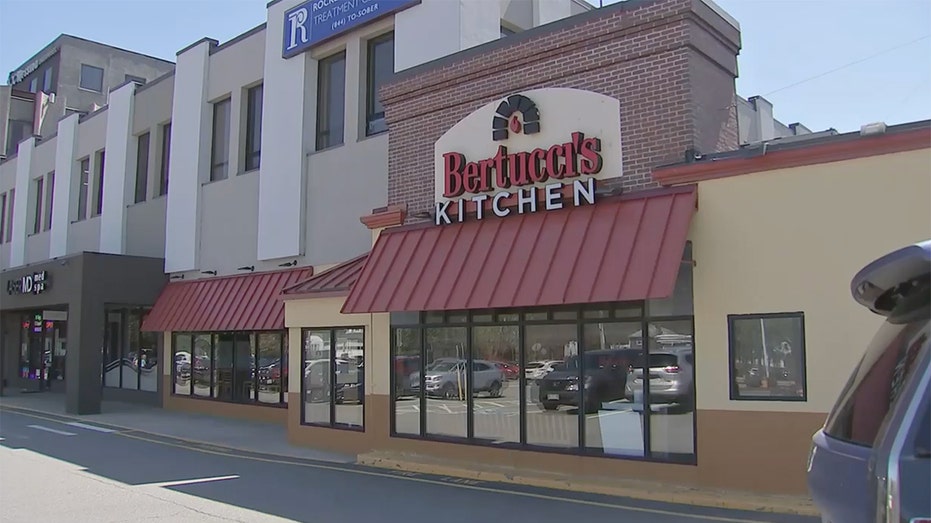
Italian restaurant chain Bertucci’s has filed for bankruptcy for the third time since 2018. It has also closed seven restaurants to mitigate losses, according to an April 24 bankruptcy filing. (WFXT)
The company cited the “deterioration” of the U.S. economy and “lack of consumer demand for legacy casual-dining brands” as reasons why the restaurant chain has been operating at a loss, according to the filing.
FAST-FOOD CHAIN CLOSING UP TO 200 ‘UNDERPERFORMING’ LOCATIONS
“With losses accumulating, inflationary pressures still high, and industry headwinds gusting, the proverbial final straw fell on [Bertucci’s] this year as the world saw food costs soar, consumer spending slow, and an uncertain global economy falling in (and out) of decline,” as stated in the bankruptcy documents.
Bertucci’s has assets and liabilities between $10 million and $50 million, according to the filing.
TGI FRIDAYS’ US FOOTPRINT HAS SHRUNK TO 85 RESTAURANTS ACROSS THE COUNTRY
The restaurant chain hopes bankruptcy will provide the business with a “breathing spell” so it can “determine the best path forward and formulate an overall reorganizational plan,” it said in the filing.
In April 2018, Bertucci’s filed for Chapter 11 bankruptcy protection and closed 15 restaurants. In December 2022, amid challenges caused by the COVID-19 pandemic like the closure of restaurants and inflation, it declared bankruptcy for a second time and streamlined operations down to 23 locations, according to the filing.
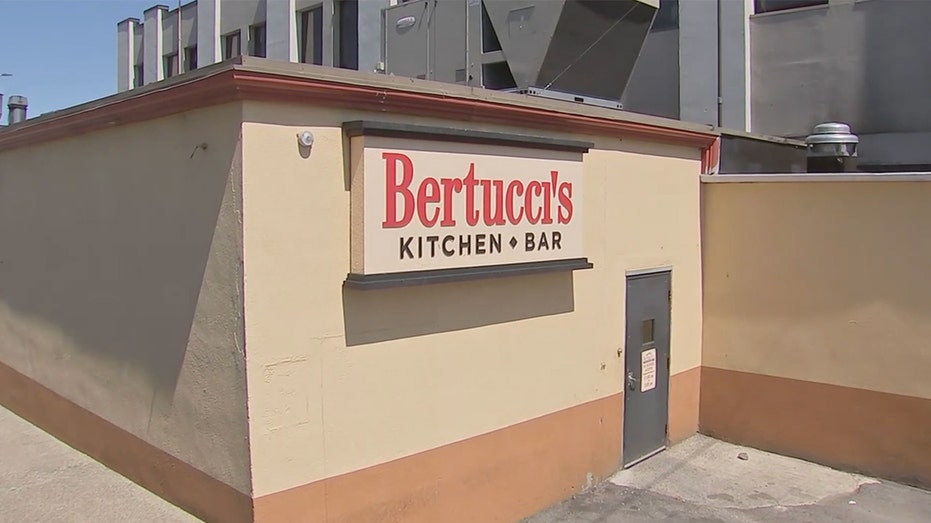
Bertucci’s previously filed for bankruptcy in 2018 and 2022. (WFXT)
CLICK HERE TO GET THE FOX NEWS APP
Bertucci’s did not respond to FOX Business’ request for comment.
-

 Reverse Mortgage1 year ago
Reverse Mortgage1 year agoHow Reverse Loans Can Provide Financial Relief in Retirement
-

 Mortgage Rates1 year ago
Mortgage Rates1 year agoComo puedo comprar una casa a crédito si no se nada?
-

 Mortgage Rates1 year ago
Mortgage Rates1 year agoNiro Loan App 2024 || Niro App Se Loan Kaise Le || New Loan App Best Instant Loan App Without Cibi
-

 Reverse Mortgage1 year ago
Reverse Mortgage1 year agoExploring the Myths and Realities of Reverse Mortgages for Seniors in 2024
-

 Reverse Mortgage1 year ago
Reverse Mortgage1 year agoThe Pros and Cons of Using a Reverse Mortgage for Retirement Planning
-

 Reverse Mortgage8 months ago
Reverse Mortgage8 months agoThe Benefits of a HECM Loan for Seniors: Financial Freedom in Retirement
-

 USDA Mortgage1 year ago
USDA Mortgage1 year agoMaking Your Dream of Country Living a Reality: FMHA Rural Home Loans in Focus
-

 Auto Loans6 months ago
Auto Loans6 months agoDrive Away in Your Dream Chevy with Chevrolet’s Hassle-Free Lending Process

